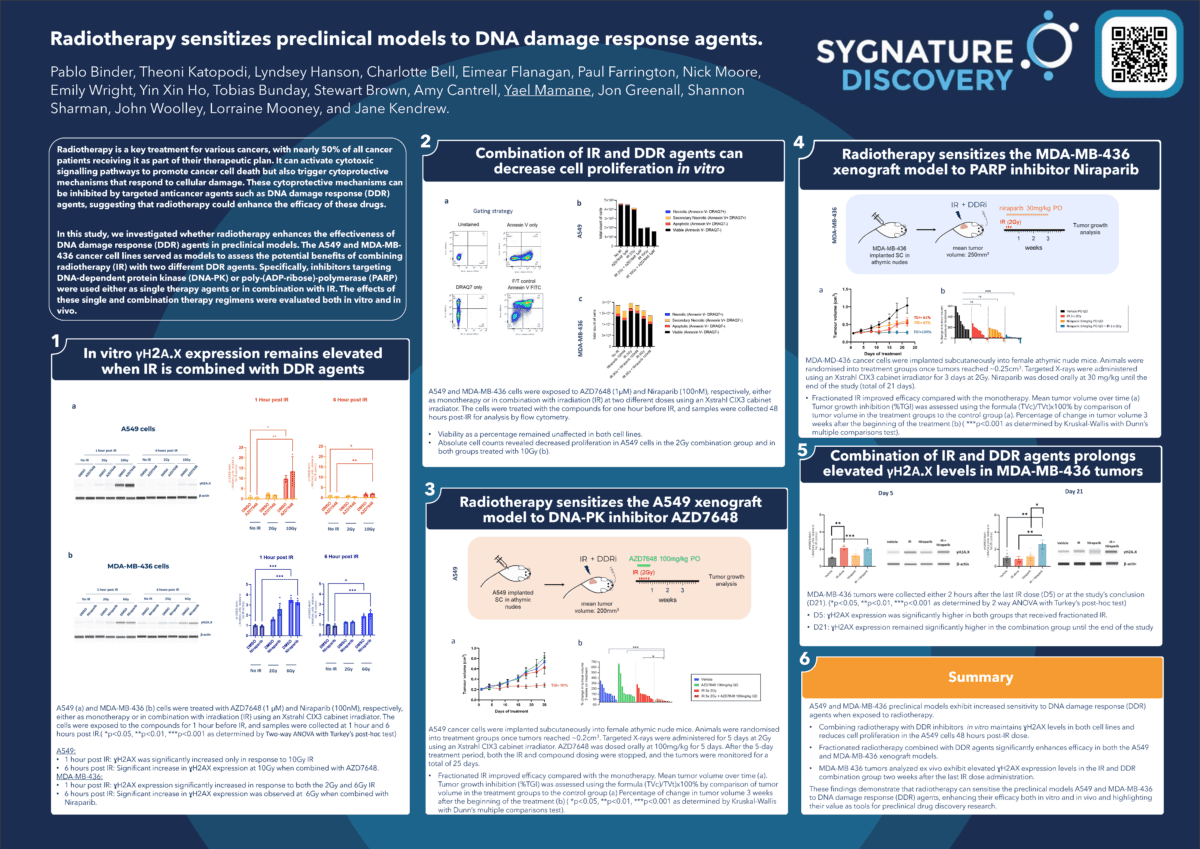Radiotherapy sensitizes preclinical models to DNA damage response agents
Radiotherapy is a key treatment for various cancers often in combination with other therapies.
In this study, we investigated whether radiotherapy enhances the effectiveness of DNA damage response (DDR) agents in the A549 and MDA-MB-436 preclinical xenograft models. Specifically, inhibitors targeting DNA-dependent protein kinase (DNA-PK) or poly-(ADP-ribose)-polymerase (PARP) were used either as monotherapy or in combination with radiotherapy.
The evaluation of monotherapy and combination treatment regimens revealed that A549 and MDA-MB-436 xenograft models exhibit increased sensitivity to DDR agents when exposed to radiotherapy both in vitro and in vivo.
More specifically:
- Combining radiotherapy with DDR inhibitors in vitro maintains ɣH2AX levels in both cell lines and reduces cell proliferation in the A549 cells 48 hours post
- Fractionated radiotherapy combined with DDR agents significantly enhances efficacy in both the A549 and MDA-MB-436 xenograft models.
- MDA-MB 436 tumours analysed ex vivo exhibit elevated ɣH2AX expression levels in the radiotherapy combination group two weeks after the last dose of radiotherapy.
These findings demonstrate that radiotherapy can sensitise preclinical xenograft models to DNA damage response (DDR) agents both in vitro and in vivo. The data highlight the utility and value of the radiotherapy platform for testing the efficacy of novel therapeutic agents in combination with a clinically relevant standard of care in drug discovery research.

